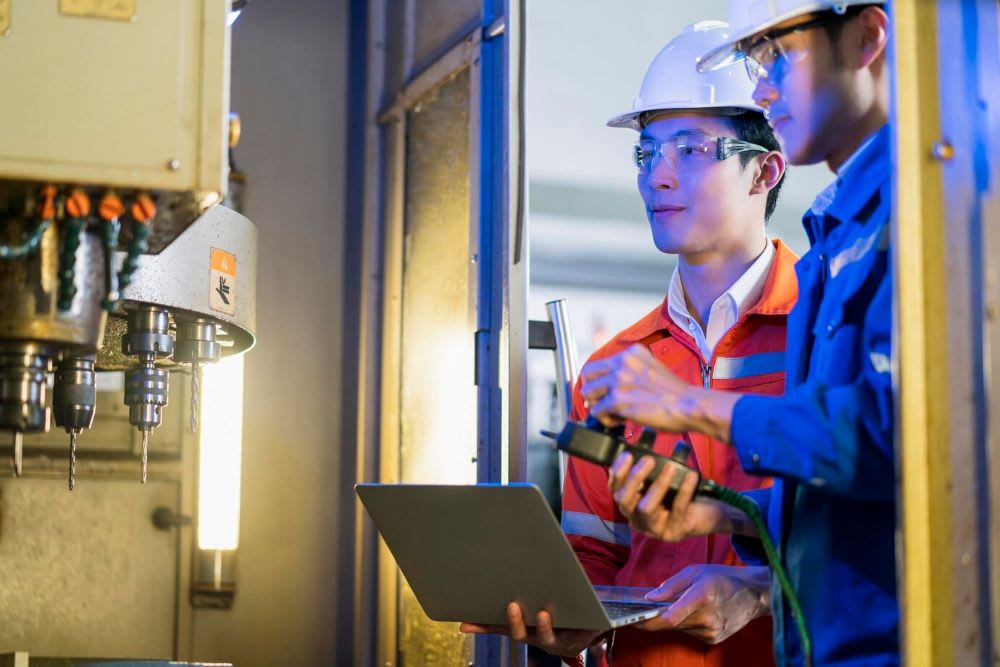- Published Mar 15, 2024
- Last Modified Mar 15, 2024
- 7 min
The Importance of Energy Audits for Businesses in the Philippines
Learn the importance of energy audits for businesses in the Philippines. Explore benefits like operational cost reduction and environmental sustainability.

In today's rapidly advancing world, energy consumption plays a pivotal role in driving civilization forward. Yet, this progress comes at a cost, significantly impacting climate change due to increased carbon footprints. Amidst this paradox, energy audits emerge as a means for businesses to promote sustainability and reduce operational costs. These assessments meticulously analyze a facility's energy use, spotlighting opportunities to enhance efficiency.
In the Philippines, for instance, the Department of Science and Technology (DOST) actively promotes energy audits through campaigns aimed at businesses. This initiative underscores the local government’s goal to achieve a balance between economic growth and environmental stewardship.
In this blog post, we will discuss everything you need to know about energy audits, including the process involved and the tools used. This way, you’ll have a roadmap to sustainability and improved operational efficiency.

What Is an Energy Audit?
Energy audits are comprehensive assessments that dive deep into the intricacies of a facility's energy consumption and performance. At their core, these audits aim to unveil the nuances of how a business uses energy, providing a clear blueprint for enhancing efficiency and sustainability.
The process of conducting an energy audit can be segmented into these three notable steps:
1. Preliminary Energy-Use Analysis
This initial audit phase involves gathering and reviewing historical energy data. During this step, analysts compare this information against industry benchmarks to identify potential areas for improvement. Essentially, this phase sets the stage for more in-depth investigation, allowing businesses to understand their energy consumption patterns relative to similar entities.
2. On-Site Audit Procedures
Following the preliminary analysis, auditors conduct a thorough on-site examination. This step involves physical inspections, interviews with facility personnel, and the use of various diagnostic tools to gather real-time data on energy usage. Additionally, it's during this audit phase that the true extent of energy inefficiencies starts to come to light, offering tangible insights for enhancement.
3. Detailed Audit Analysis and Reporting
The audit process culminates with comprehensive analysis and reporting. Here, the collected data is meticulously reviewed to pinpoint specific inefficiencies and propose targeted interventions. Besides, the report not only highlights areas of concern but also outlines actionable recommendations for energy conservation and efficiency improvements.
Note that the depth of energy audits varies depending on the budget, needs, and goals. Generally, you can choose from the following:
- Walk-Through Audits: These audits offer a swift overview of potential savings by quickly identifying glaring inefficiencies without the need for extensive data collection or detailed analysis.
- General Audits: These audits provide a broader understanding of energy usage by conducting a more detailed examination than walk-through audits, which balances thoroughness with the practicality of resource investment.
- Detailed Audits: These audits deliver an exhaustive evaluation of a facility's energy performance. They generally involve comprehensive data analysis and diagnostic testing to uncover every possible opportunity for efficiency improvement.
What Are Used in Energy Audits?
Conducting energy audits involves using specialized tools to accurately evaluate and improve a facility's energy performance. Energy auditing equipment includes:
- Combustion Analyzer: This tool measures the efficiency of combustion engines and furnaces, crucial for optimizing fuel use and minimizing waste.
- Infrared Thermometer: Used for detecting areas where heat is leaking from a building, an infrared thermometer is vital for improving insulation and conserving energy.
- Energy Meter: An energy meter monitors the amount of electrical energy consumed by devices, crucial for managing electrical loads effectively.
- Power Meter: Similar to an energy meter, a power meter analyzes the electrical energy usage of a system or device but with a focus on real-time power levels.
- Thermal Scanner: This device provides a visual representation of temperature variations, effectively detecting insulation issues and electrical faults.
- Power Data Logger: This tool records electricity usage over time, offering insights into consumption patterns and identifying opportunities for energy-saving practices.
- Tachometer: A tachometer measures the rotation speed of engines or machinery, which is useful for optimizing the performance and energy efficiency of mechanical systems.
- Stroboscope: This tool examines moving parts in machinery to identify inefficiencies, contributing to energy savings once these issues are addressed.
- Light Meter: Light meters assess the intensity of lighting in different areas, helping to adjust levels to optimal conditions and reduce unnecessary energy consumption.
- Laser Distance Meter: This meter ensures precise measurements of rooms and spaces, enabling accurate calculation of energy needs and the efficient sizing of HVAC systems.
The Importance of Energy Audits

Energy audits offer a multitude of benefits for businesses, serving as a critical step towards achieving sustainability and reducing operational costs. Here are some ways they can uncover opportunities for improvement and compliance with energy regulations in the Philippines:
1. Uncovering Energy Inefficiencies
Energy audits are instrumental in identifying inefficiencies within business processes, including energy wastage from outdated equipment and inefficient lighting systems. By pinpointing these inefficiencies, businesses can take corrective actions, such as upgrading to energy-efficient appliances and installing LED lighting. Consequently, they can optimize their energy consumption and contribute to environmental conservation.
2. Reducing Operational Costs
One of the most significant benefits of energy audits is the potential for substantial cost savings. These audits help businesses decrease their energy consumption through various means, such as improving HVAC systems and enhancing insulation, which in turn optimizes operational efficiency. Reduced energy costs not only improve a plant's profitability but also enhance its competitiveness in the market by lowering the overhead expenses associated with energy use.
3. Promoting Environmental Sustainability
Energy audits also play a crucial role in helping businesses reduce their environmental impact. Implementing the recommendations from an energy audit, like adopting energy-efficient technologies and practices, aids in achieving sustainability goals. Furthermore, decreasing a business's environmental footprint through energy conservation measures can bolster its brand image and reputation, as consumers increasingly favour companies with sustainable practices.
4. Ensuring Compliance with Energy Regulations
Compliance with energy regulations and standards is another critical aspect addressed by energy audits. These audits provide businesses with the insights needed to understand and adhere to local and international energy regulations. By implementing the recommendations from an energy audit, a company not only demonstrates its commitment to sustainable practices but also ensures compliance with energy policies. At the same time, it avoids potential fines and legal issues.
The Future of Energy Audits in the Philippines
The potential of energy audits to revolutionize the Philippines' energy landscape is immense. With government incentives, comprehensive education, and the implementation of mandatory audits for significant energy consumers, the country stands on the cusp of an energy transformation. Energy audits promise not just substantial energy savings but also the creation of jobs and a resilient future for all.
As the country moves toward this goal, RS Philippines remains committed to supporting efforts to promote sustainable and efficient energy use. Explore our energy audit products today and see how we can help your business lead in energy management and sustainability.
Popular Energy Meter Brands
Schneider Electric
Schneider Electric's energy meters are designed for accuracy and ease of use, enabling detailed tracking of energy usage to support sustainable practices and energy savings in various industries.